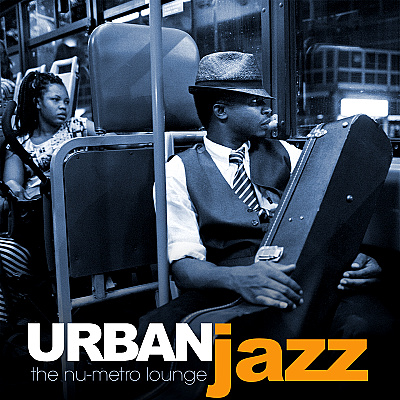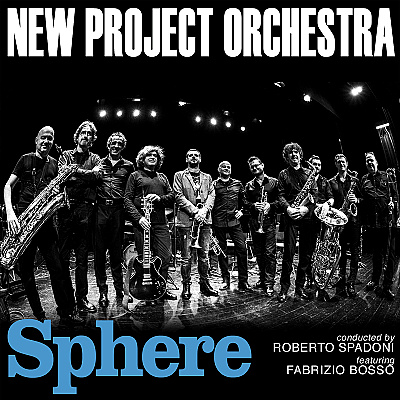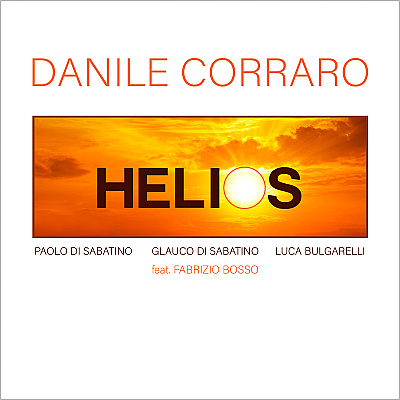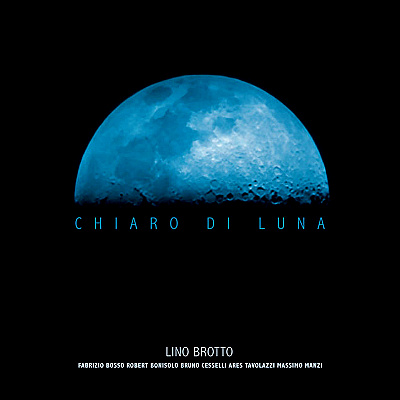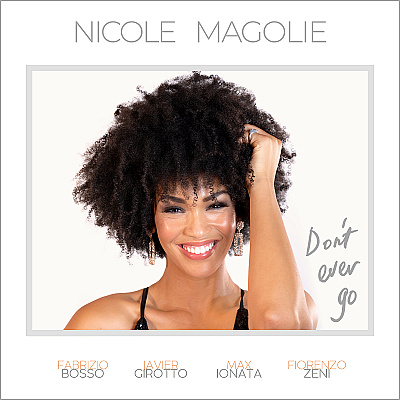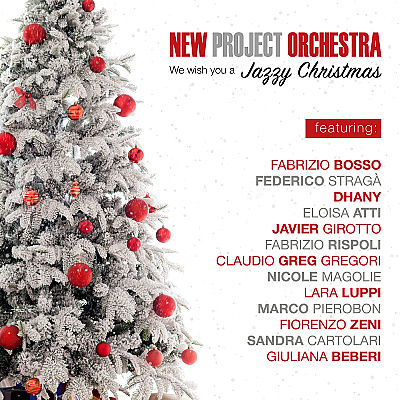Fabrizio Bosso
Info artista
Fabrizio Bosso took hold of his first trumpet at the age of 5, and at 15 graduated from the Conservatorio Giuseppe Verdi of Turin. He was drawn to jazz thanks to his father, an amateur trumpeter, but first started to improvise by playing along the records of the Italian singer-songwriters his mother was so fond of.
What characterizes Bosso’s entire career is precisely this transversal and unprejudiced approach, where he combines his profound attachment and respect for the history and tradition of jazz to his urge to bring together his own artistic idiom with that of different musical worlds.
In the sixties-seventies, Turin’s jazz scene was particularly vibrant and already boasted internationally acclaimed jazz artists such as Oscar Valdambrini, Enrico Rava and later on Flavio Boltro, who had already gained a solid reputation when Fabrizio, still a student, first rubbed elbows with the Turinese jazz circle; it is precisely with Boltro that Bosso first took part in a jam session, the same year in which he graduated from the Conservatorio.
Indefatigable and rigorous since a young age, Bosso alternated strenuous dance band tours with advanced specialization trumpet courses such as the “Corsi di Alto Perfezionamento in Saluzzo” with Pierre Thibaud, the jazz clinics at St. Mary’s College in Baltimore, and the training courses at the “Paese degli Specchi” in San Lazzaro di Savena, with Kenny Wheeler and George Russel.
When Bosso was 17, saxophonist Gianni Basso (he too from the Piemonte region but from Asti) invited the young trumpeter to be a member of his big band, an experience Bosso recalls as being highly educational: “To play in a big band section is one of the most fundamental stages: one learns discipline, articulation, intonation, which are also indispensable for who embarks on a solo career”. With Basso, the young trumpeter also took part in studio recordings for the first time: “… at first I was always very nervous, I didn’t enjoy it; then I realized that Gianni’s approach was different - he wasn’t looking for perfection but for an atmosphere, an intensity: for him that was what Jazz was all about”. Bosso recorded several discs with Gianni Basso’s band as well as with his quintet: “Gianni is one of the greats of jazz, thanks to his swing and sound, which are so absolutely unique and beyond reach”.
Giovanni Mazzarino was another to pin his faith on Fabrizio’s talent: when the Sicilian pianist, composer and arranger, by chance heard him play during a jam session in 1995, he asked him to perform as soloist in his bands. After “Cyclone”, released on Splasc(h) in 2003, Bosso took part in many of Mazzarino’s recordings, among which “Piani Paralleli”, recorded at the Fazioli Concert Hall in 2016.
In his early twenties Bosso moved to Bari, where he met producer Nicola Conte, with whom he collaborated on different occasions, and rubbed elbows with many Apulian musicians of his generation who were to rise to international fame: Gianluca Petrella, Gaetano Partipilo, Stefano Bollani, Giuseppe Bassi, Fabio Accardi. With them he formed The Jazz Convention and published the album “Up Up with The Jazz Convention” (1997, Schema Records). Bosso taught at the Conservatorio Nicolò Piccinni of Bari and played in Marco Renzi’s Big Band, alternating concert performances with radio and television productions for several years.
When Bosso was 24, Maurizio Giammarco invited him to take part in his tribute to Chet Baker and Bosso performed for the first time at the Umbria Jazz Festival in 1997.
The next year, the Carnegie Hall Orchestra, conducted by John Faddis, recruited Bosso for four of its Italian tour concerts.
That period also marked the beginning of Bosso’s partnership with pianist Paolo Di Sabatino, with whom he performed both in duo and quartet settings and has recorded several albums.
In 1999 Bosso won the TOP JAZZ as “Best New Talent” through an historical survey promoted by Musica Jazz magazine.
Bosso’s talent also caught the attention of internationally acclaimed pianist Enrico Pieranunzi, who invited him to join his group, with the subsequent release of “Enrico Pieranunzi & Horns: Evans Remembered” (Philology, 2000), and their paths have regularly crossed ever since.
In 2000, Bosso also recorded his debut album, “Fast Flight” on Red Records, for which he formed a quintet featuring Rosario Giuliani on the saxophone, Salvatore Bonafede on the piano, Giuseppe Bassi on the double bass and Marcello di Leonardo on the drums.
Shortly afterwards a new combo was founded, which for several years was to be considered as one of the leading bands of the new generation of Italian jazz musicians: the High Five Quintet. Bosso, together with saxophonist Daniele Scannapieco, Julian Oliver Mazzariello first, and Luca Mannutza later, at the piano, double bassist Pietro Ciancaglini and drummer Lorenzo Tucci, released four albums (“Jazz for More”, Via Veneto Jazz, 2002 - “Jazz Desire”, Via Veneto Jazz 2004 - “Five For Fun”, Blue Note 2008 - “Split Kick”, Blue Note 2009) as well as “Handful of Soul” (Schema Records, 2006), the disc that catapulted Mario Biondi into worldwide fame.
In 2002 Bosso and trombonist Gianluca Petrella again met when they were both invited by Franco D’Andrea, one of the major figures of Italian jazz, to set up the Riff Trio, with the subsequent recording of “Round Riff and More” (2002, Philology); that same year the album was granted the prestigious French “Django D’Or” award.
In the same period, Bosso had the opportunity to perform with Renato Sellani, another icon of the Italian jazz scene; the trumpeter recalls the pianist’s vitality: “Renato taught me how to approach music with awareness and rigor yet also with lightness”.
Another fortunate encounter came about with “Once I Loved”, the duo disc released with Irio De Paula in 2003. With the Brazilian guitarist, a jazz expert and a classy composer who had moved to Italy in the mid-60s, Bosso got to know and play Brazilian music and discovered that it was not so distant from jazz. Their partnership, which lasted several years, is also documented on video, a live concert filmed in the splendid setting of the Teatro Olimpico di Vicenza (Azzurra, 2007).
In 2004 he performed as solo trumpet with Charlie Haden’s Liberation Orchestra on some of its European tour dates, with the participation and arrangements of Carla Bley.
In 2006 he performed in quintet at the Brianza Open Festival with Argentinian saxophonist Javier Girotto, pianist and vocalist Natalio Luis Mangalavite, also from Cordoba, double bassist Luca Bulgarelli and drummer Lorenzo Tucci; shortly afterwards they formed the Latin Mood Quintet, later a sextet with the entry of percussionist Bruno Marcozzi. Latin Mood has two albums to date: “Sol” (Blue Note, 2008) and “Vamos” (Schema Records, 2013).
One of the discs that undoubtedly marked a turning point in Bosso’s career is “You’ve Changed” (Blue Note, 2007), featuring a jazz quartet with pianist Pietro Lussu, double bassist Luca Bulgarelli and drummer Lorenzo Tucci plus a 13-string orchestra masterfully arranged and conducted by Paolo Silvestri. The lineup boasts several special guests such as Sergio Cammariere, Bebo Ferra, Stefano di Battista and Dianne Reeves, who magically interprets the title track.
Bosso founded his first quartet as leader in 2009, with pianist Luca Mannutza, double bassist Luca Bulgarelli and drummer Lorenzo Tucci; with the latter Bosso did many performances, namely the previously unreleased duet documented on the album “Drumpet” (Via Veneto Jazz, 2014).
One of the settings best suited to Bosso is the two-way musical dialogue, and his collaboration with the volcanic Antonello Salis also sparked the trumpeter’s interest in electronic experimentation. The two musicians released their album “Stunt” (Parco della Musica Records, 2009), singled out as “Best Disc of the Year” by TOP JAZZ.
A few years later, another accordionist conversed with Bosso’s trumpet, Luciano Biondini: together they recorded “Face To Face” (Abeat, 2012), the first of a long series of projects together, among which several theatrical shows.
The following year drummer Alessandro Minetto, a friend of his youth, invited Bosso to perform in trio with organist Alberto Marsico, a collaboration which took him into the world of Gospel music and led to the formation of the Spiritual Trio, one of his most prolific combos, with three albums to date (“Spiritual”, Organic Music 2010 – “Purple”, Universal / Verve 2013 – “Someday”, Warner Music 2019).
Participating to other musicians’ projects is fundamental for Bosso, even when they seem remote from his chosen route, as is the case with Complete Communion, the quartet led by drummer Aldo Romano, featuring Henri Texier on the double bass and Geraldine Laurent on the alto saxophone, in a tribute to Don Cherry’s music (“Complete Communion”, Dreyfuss, 2010).
2011 marked another turning point in Bosso’s career with the recording, in London’s Air Studios, of “Enchantment - L'incantesimo Di Nino Rota”, a tribute recording to Nino Rota, with the London Symphony Orchestra and rhythm section members Claudio Filippini, Rosario Bonaccorso and Lorenzo Tucci. The music was arranged and conducted by Stefano Fonzi. The recording gave Bosso the opportunity to avail himself of his solid classical training and to masterfully interact with the orchestra’s potent sound, passing with great ease from the symphonic parts to jazz improvisations. Again in 2011 Bosso was singled out as “Best Trumpeter of the Year” by the JazzIt Awards, a recognition he was to be granted several times.
The renewed encounter with pianist Julian Oliver Mazzariello, who had featured as first pianist of the High Five Quintet, brought about the formation of Tandem, a duo combo which showcases the musicians’ immediate and natural affinity: an ever-evolving experience always in line with their individual careers. (“Tandem”, Universal Verve, 2014 - “Tandem Live at Umbria Jazz Winter”, Warner Music, 2019)
From his duo with Mazzariello sprang the idea of a new quartet. Bosso invited the young double bassist from Salento, Luca Alemanno, and drummer Nicola Angelucci to perform with them in two concerts in Milan in early 2014: an explosive partnership which immediately confirmed the new lineup.
It brought about “Duke” (2015, Universal Music), a work in which the Quartet demonstrated it could deal with any kind of situation. The combo’s tribute to Ellington, supported by a six-piece brass ensemble masterfully conducted and arranged by Paolo Silvestri, was a great success, and each of its performances met with the unconditional enthusiasm of participants and public alike.
The Quartet stacked up concerts in Italy and abroad, consolidating their musical and personal understanding, even when Luca Alemanno, who had won the Thelonious Monk Institute of Jazz Performance auditions, moved to Los Angeles and was replaced by the young and extremely gifted Jacopo Ferrazza. The Quartet released “State of the Art” (2017, Warner Music), a live recording that captured on disc some of the most unforgettable moments of the quartet’s 2016 international tour, and one of the happiest phases in Bosso’s career: an ex
Bosso and saxophonist Rosario Giuliani’s deep and long-standing friendship triggered a new series of concerts, and led to the formation of Connections, their quartet featuring Hammond organ player Alberto Gurrisi and drummer Marco Valeri.
Another long-considered partnership, this time with Mauro Ottolini, trombonist, arranger and expert on jazz at its origins, finally came to light with Storyville Story, a stunning sextet that boasts, together with Bosso and Ottolini, singer Vanessa Tagliabue Yorke, sousaphonist Glauco Benedetti, pianist Paolo Birro and drummer Paolo Mappa.
Early 2020, just as the Quartet was getting ready for their new studio recording, the Covid-19 pandemic put all projects on hold. “WE4” was recorded months later in June, in an almost improvised and unexpected manner, and concentrates on disc the intensity of that moment when at long last the musicians could make music together; the album was released at the end of the year on Warner Music.
Bosso’s noteworthy jazz partnerships have been countless, with, in addition to the names already mentioned, other important collaborations with artists of the likes of Dino Piana, Marco Tamburini, Dee Dee Bridgewater, Dianne Reeves, Rita Marcotulli, Stefano Di Battista, Enrico Rava, Furio di Castri, Rosario Bonaccorso.
Bosso also counts several collaborations as soloist in orchestral projects under foremost conductors such as Wayne Marshall, Maria Schneider, Ryan Truesdell.
Many illustrious Italian pop artists have also wanted the sound of Fabrizio Bosso's trumpet to enhance their music, namely Sergio Cammariere, to whom Bosso owes his debut at the Sanremo Festival in 2003, when the Calabrian singer-songwriter invited the trumpeter to perform with him “Tutto quello che un Uomo”. They again shared the stage there in 2008, when Cammariere took part in the contest with “L’Amore non si spiega”.
Bosso returned several times to Sanremo with other important artists: in 2009 with Simona Molinari (“Egocentrica”), in 2011 with Raphael Gualazzi, who won the Best Newcomer’s Award with his song “Follia D'Amore”, in 2012 with Nina Zilli (“Per Sempre”), and with whom he toured “We Love You - Jazz'n Soul” the following year, and again with Raphael Gualazzi in 2013.
Bosso’s distinctive sound also features in albums of artists such as Renato Zero, Zucchero, Tiziano Ferro, Joe Barbieri, Claudio Baglioni and Franco Califano (their live performance of “E la Chiamano Estate” in the popular Italian TV show Domenica In is worth a reminder).
In 2011, Bosso invited two special guests to feature in “Tandem”, his first duo recording with Julian Oliver Mazzariello: Fabio Concato, for his wonderful “Gigi”, and Fiorella Mannoia in “Roma Nun Fa la Stupida Stasera”. The duo’s musical understanding with the Milanese singer-songwriter subsequently led to several trio concerts, that paved the way to the recording of their album “Non Smetto di Ascoltarti”, released on Warner Music in 2016.
Along with his stable formations Bosso also broadens his artistic quest and path through other types of collaborations where he can experience different means of creativity and ex
Always open to new experiences, staying true to the freedom he opted for right from the start and to the conviction that every encounter has something to teach him, Fabrizio Bosso has chosen Music as the means to narrate his personal and artistic story, sharing it on stage with his companions as well as with his own audience, ever-growing and devoted.






